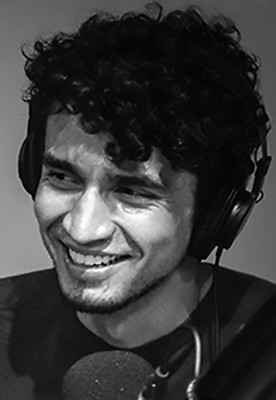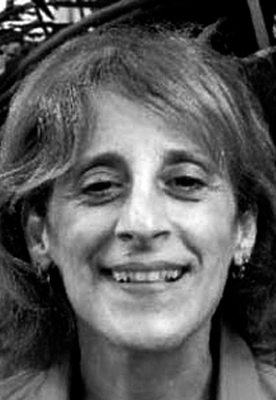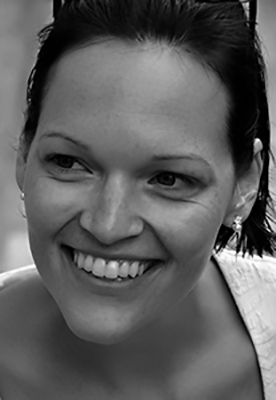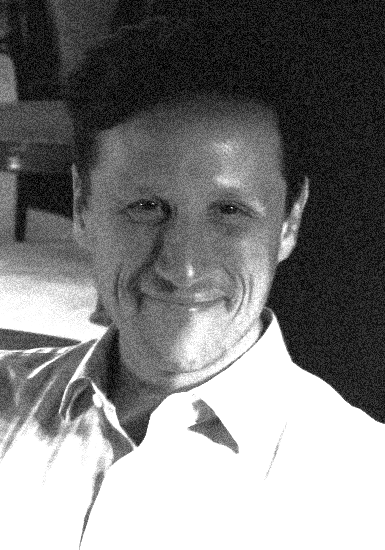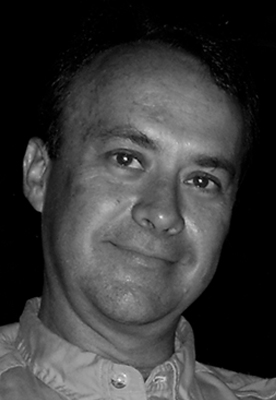39. America the Bilingual Goes to Morocco
In the United States, we hear periodic news reports about people being accosted for speaking another language in public. In order to be a patriotic, real American, one must, it seems, speak only English. If you do happen to speak another language, you should keep it at home, or in your church, maybe. And if your other language happens to be Arabic, for heaven’s sake, don’t speak it in an airport.
This is what’s normal in many parts of America today. But there was also a time in America when it was normal that African Americans were enslaved. When women could not vote. When gays couldn’t show affection in public—and certainly could not marry.
What’s normal is that America changes, and thank goodness it does. We have gradually, and very unevenly, granted rights and personhood to those Americans among us who have been denied those things.
Envisioning a new normal for languages in America
And so, when it comes to rights, what could be a better example of free speech than to be able to speak freely in public in another language? And when it comes to patriotism, what could be more patriotic than defending our country by actually being able to understand our allies, and our enemies, in their own languages?
To help us envision such a new normal in America, it’s helpful to visit other countries where people already do view bilingualism as vital to their national interests. No nation can match America in the quantity and diversity of our immigrants. But other nations are ahead of us in realizing that bilingualism can be a strength rather than a weakness, and thus in finding effective ways to invest in their human linguistic capital. By visiting and listening to others outside of our borders, we can collect ideas for the new American normal we wish to create.
In Episode 39 of the America the Bilingual podcast, I take you to one of those countries, Morocco, where I had the privilege of meeting a group of people who showed just how a linguistically diverse nation can function—and much of the time, harmoniously. Come with me as America the Bilingual goes to Morocco, and I’ll introduce you to some of these people, all of whom I met through the Advanced Leadership Initiative (ALI) at Harvard that I participated in four years ago.
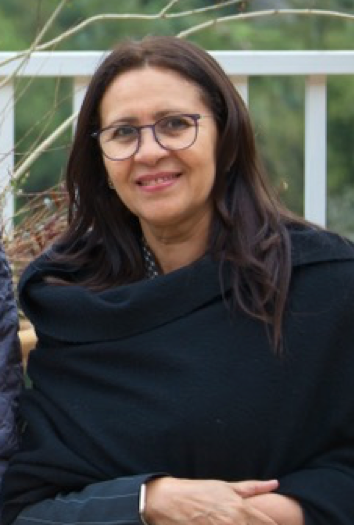
Nouzha Chekrouni, the former Ambassador to Canada from Morocco, hosted her 2015 Harvard ALI class in Morocco. She holds a Ph.D. in sociolinguistics from Sorbonne Nouvelle in Paris.
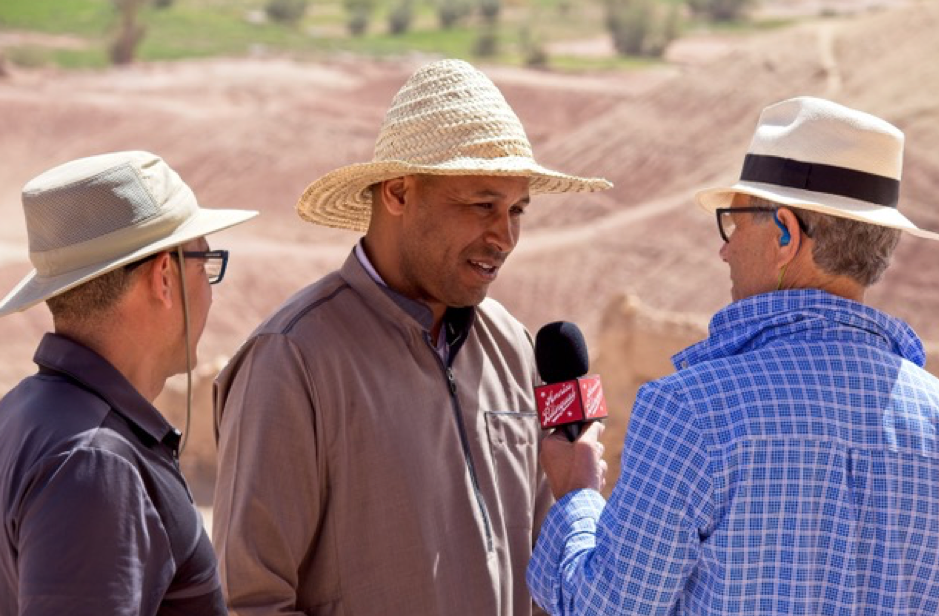
Aziz Goumi (left) helps Steve interview Mohamed El Kachir (center), who speaks Tamazight (pronounced “Amaziri,” and also called Berber) as his native language. He also speaks Arabic, French, Spanish and English.
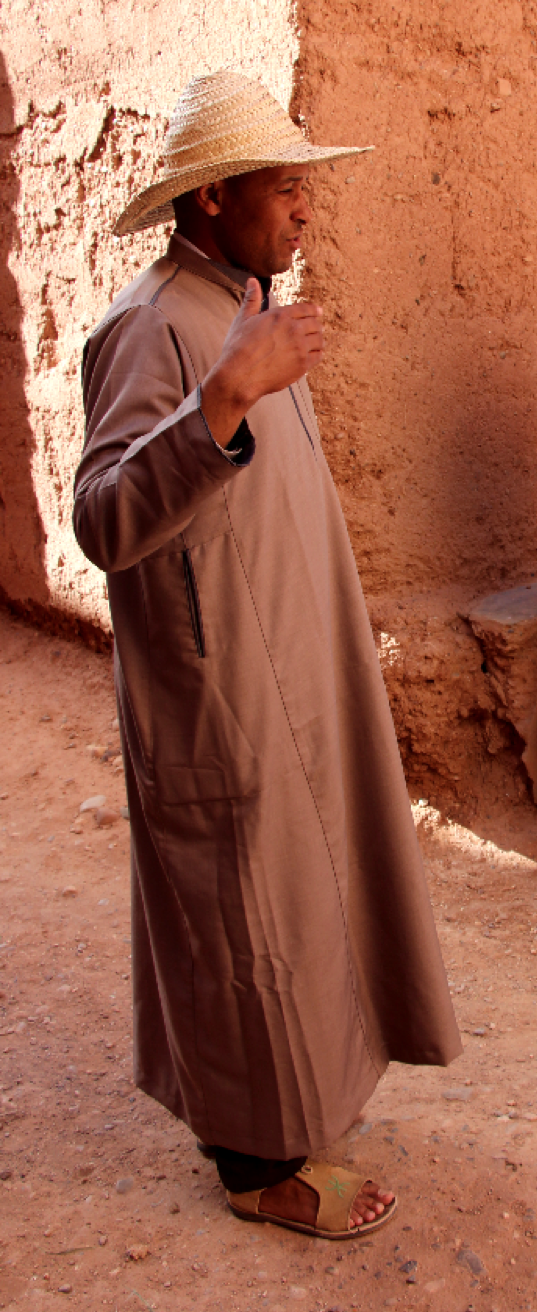
Mohamed is from the famous kasbah Ait Ben Haddou, where he was an extra in “Game of Thrones,” parts of which have been filmed in Morocco. Mohamed is wearing a djellaba, a traditional overgarment.
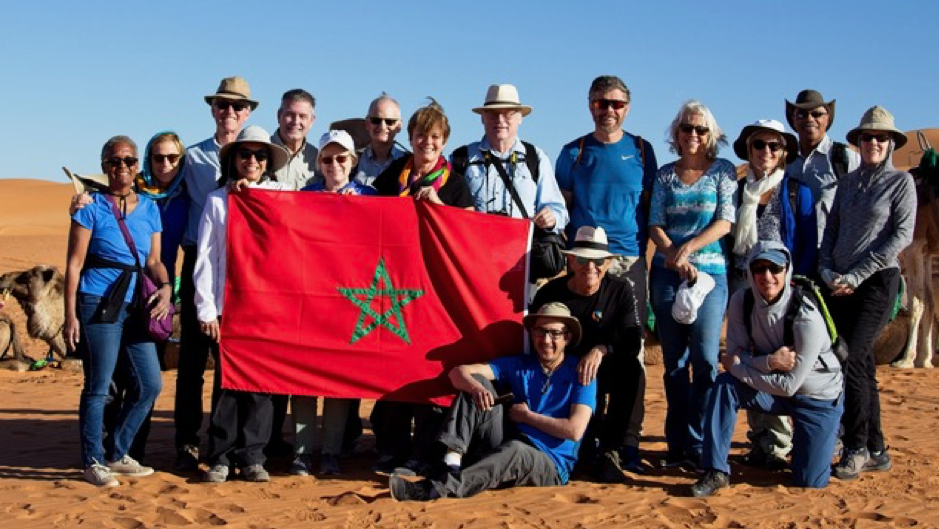
Aziz Goumi (seated) with Steve kneeling behind him, along with other members of the Harvard ALI cohort holding the flag of Morocco.
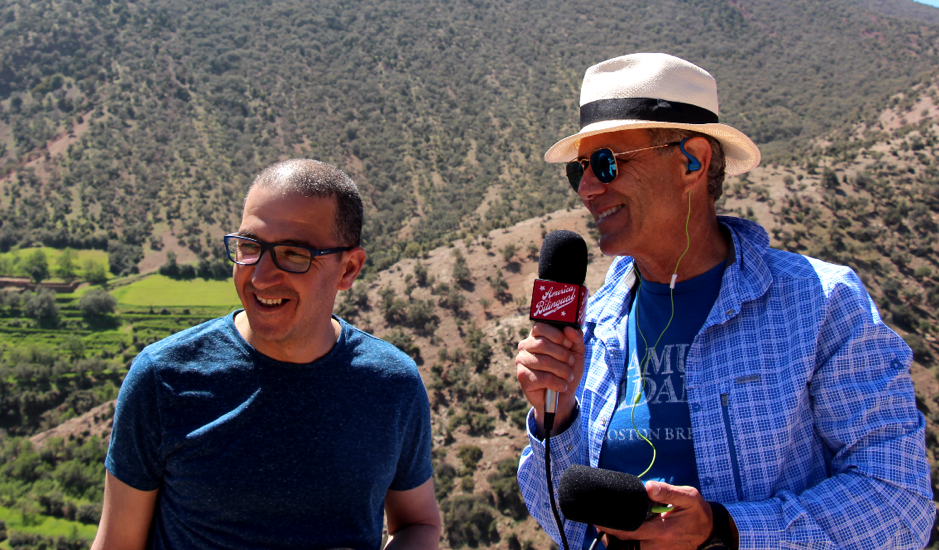
Aziz Goumi, our guide in Morocco, speaks fluently in Arabic, French and English.
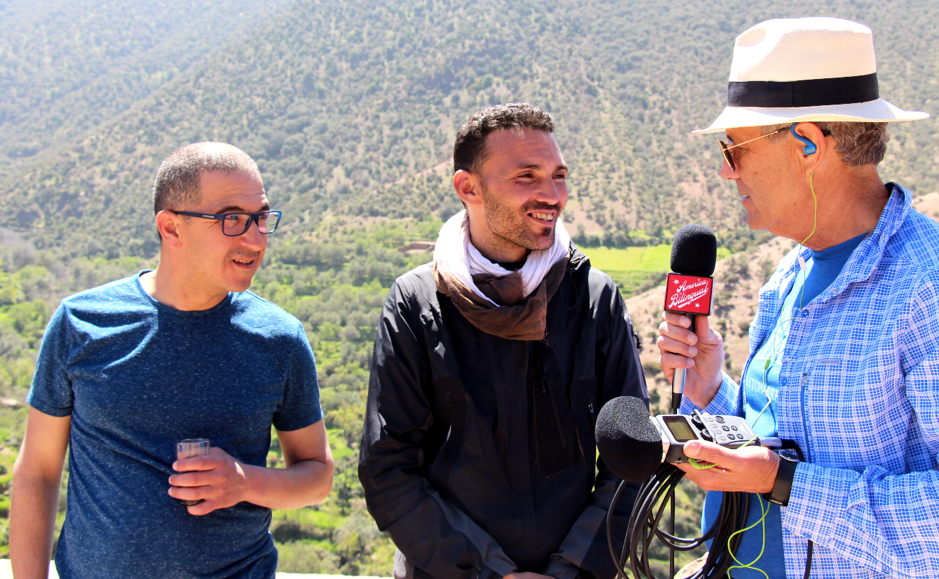
Aziz (left) helps translate to Arabic for Abdul (center), whose full name is Abdelatif Ait Mbarek. Abdul’s first language is Tamazight, or Berber. Abdul answers my questions in English. He hopes his three children learn French and Arabic in school.
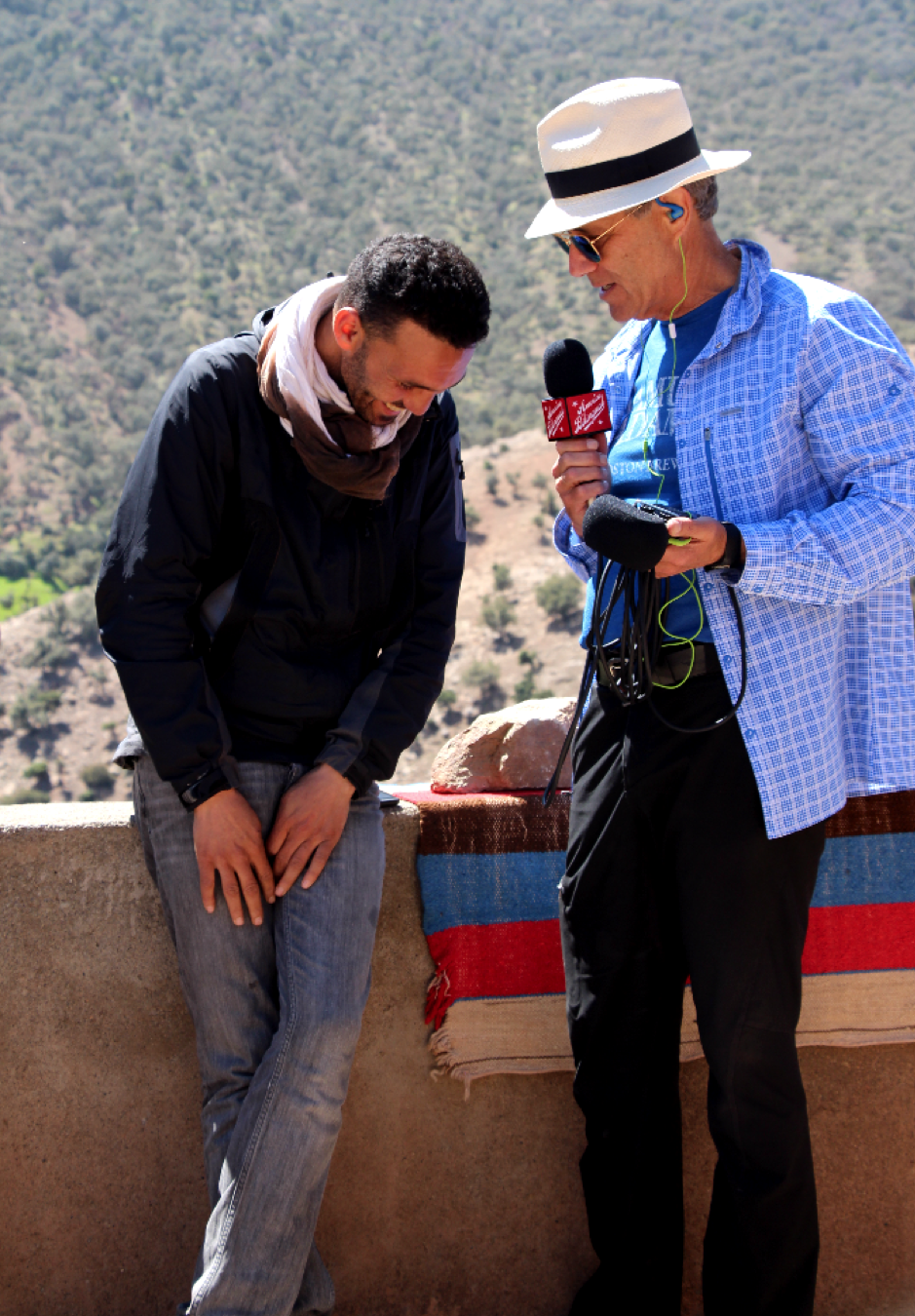
“Why do you do what you do?” asks Steve. Abdul answers: “Money.” (And is probably thinking, “What a stupid question.”)
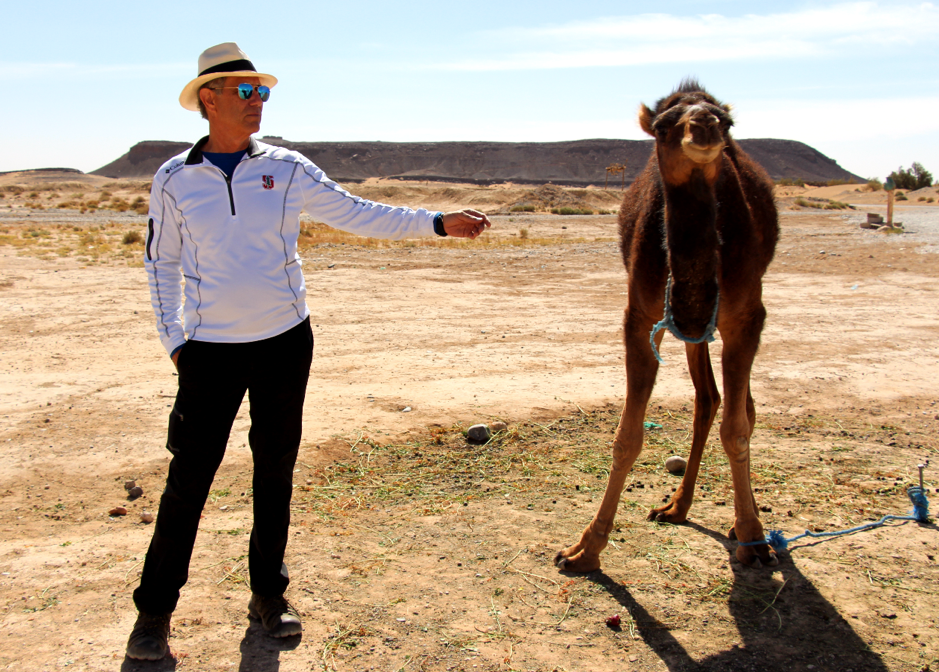
“Get my mic. This guy has something to say…”
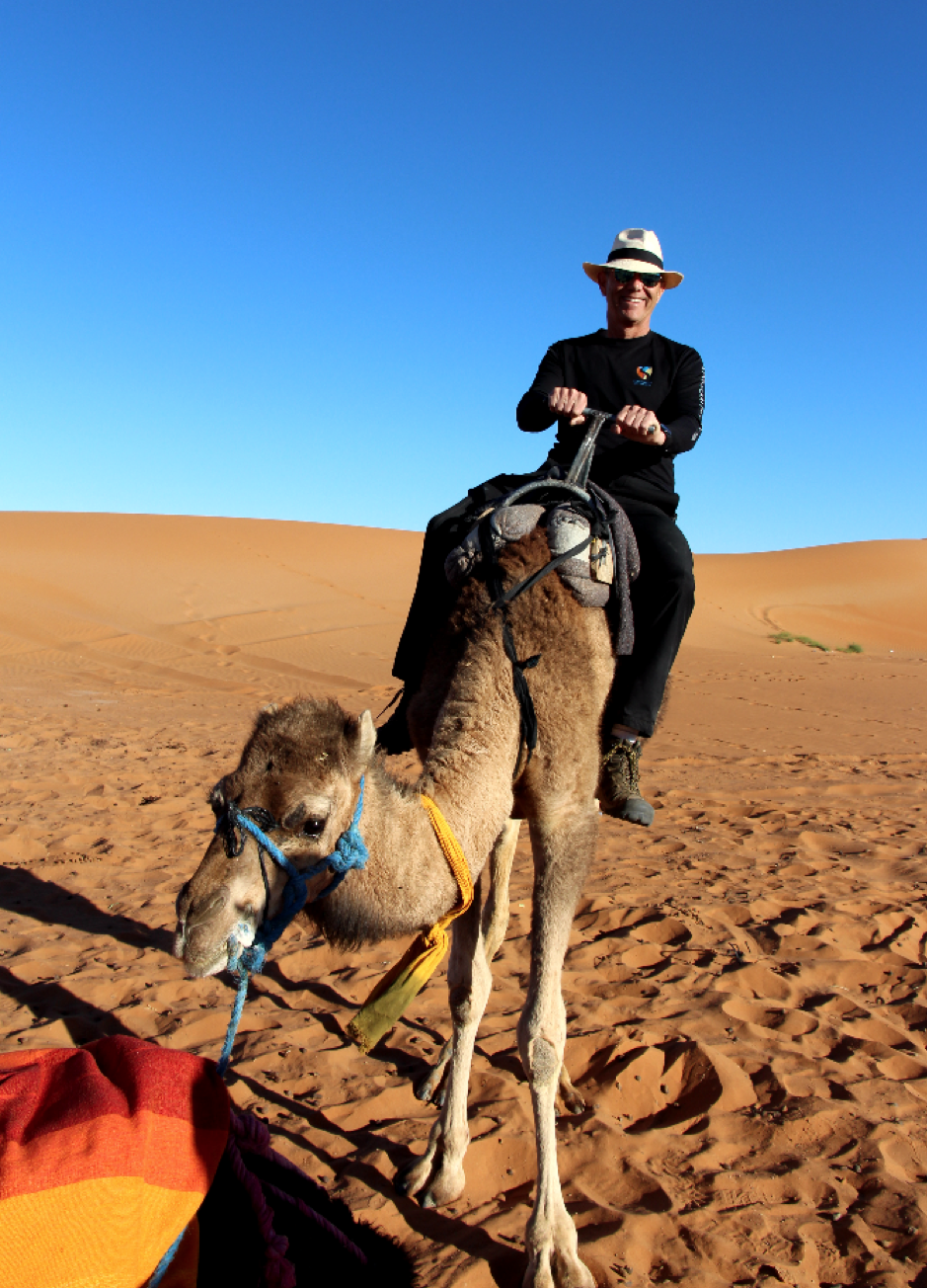
“I got this. Where’s the brake?”
HEAR THE STORY
Listen on iTunes by clicking here: America the Bilingual by Steve Leveen on iTunes. Or on SoundCloud here. Steve comments on Twitter as well.
Credits
The America the Bilingual podcast is part of the Lead with Languages campaign of ACTFL — The American Council on the Teaching of Foreign Languages.
This episode was written by me, Steve Leveen, the founder of America the Bilingual, and edited by Fernando Hernández, who also does our sound design and mixing. Mim Harrison is the editorial and brand director for the America the Bilingual project. Graphic arts are created by Carlos Plaza Design Studio. Caroline Doughty is our social media maestro. Beckie Rankin is the podcast’s associate producer. Daruma Tech powers the website. Meet the team—including our bark-lingual mascot, Chet—here.
Thank You
Special thanks to the ALI colleagues I traveled with to Morocco, including: Ken Creary and Lauren States, Bob Heckart, Lisa Claudy Fleischman and Chuck Fleischman, Ken and Lisa Kelley, Judy Perry Martinez and Rene Martinez, Eduardo Elejalde and Maria Teresa Hernández, Winifred White Neisser and Ken Neisser, Michael and Laurie Pepe, Jim and Karen Sherriff, Deborah Hannam and John Donovan, Peter Holbrook, Denis Weil, Horst Melcher, Susan and Len Miller, and Louise and Tom Middleton.
A special shout-out to Ken Creary and my wife, Lori, for their photography.
Support for the America the Bilingual project comes from the Levenger Foundation.
Live Moroccan music in this episode is by Gnaoua Music Khamlia. Other music, “Quasi Motion” by Kevin MacLeod, was used with a Creative Commons Attribution License. Our thanks to Epidemic Sound for helping us make beautiful music together.
Let us know what you think
If you like this episode, please share with a friend and subscribe on iTunes or wherever you listen to podcasts. And let us know what you think: leave a comment on our Facebook page about this episode, or on any other thoughts you have about bilingualism in America. We love hearing from our listeners!
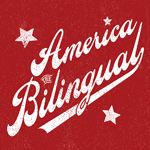
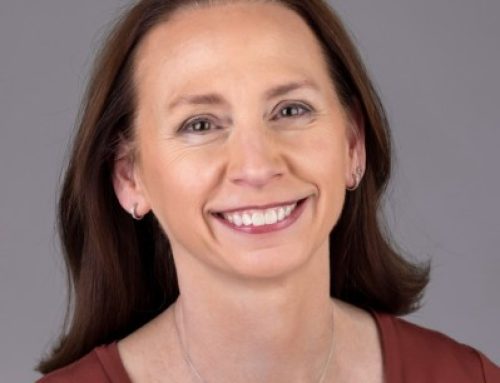
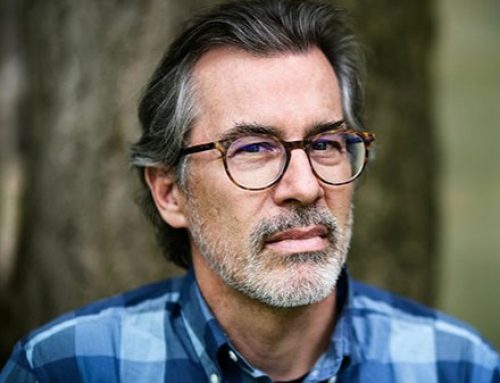
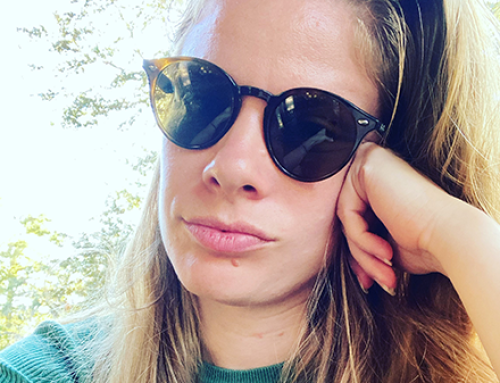
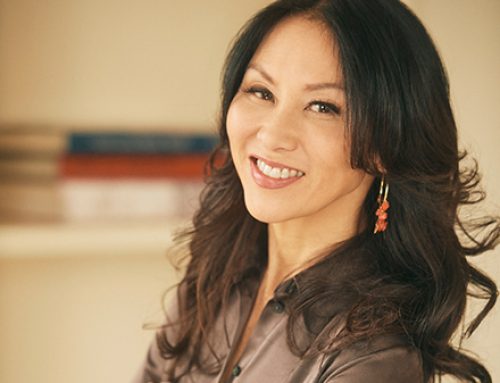
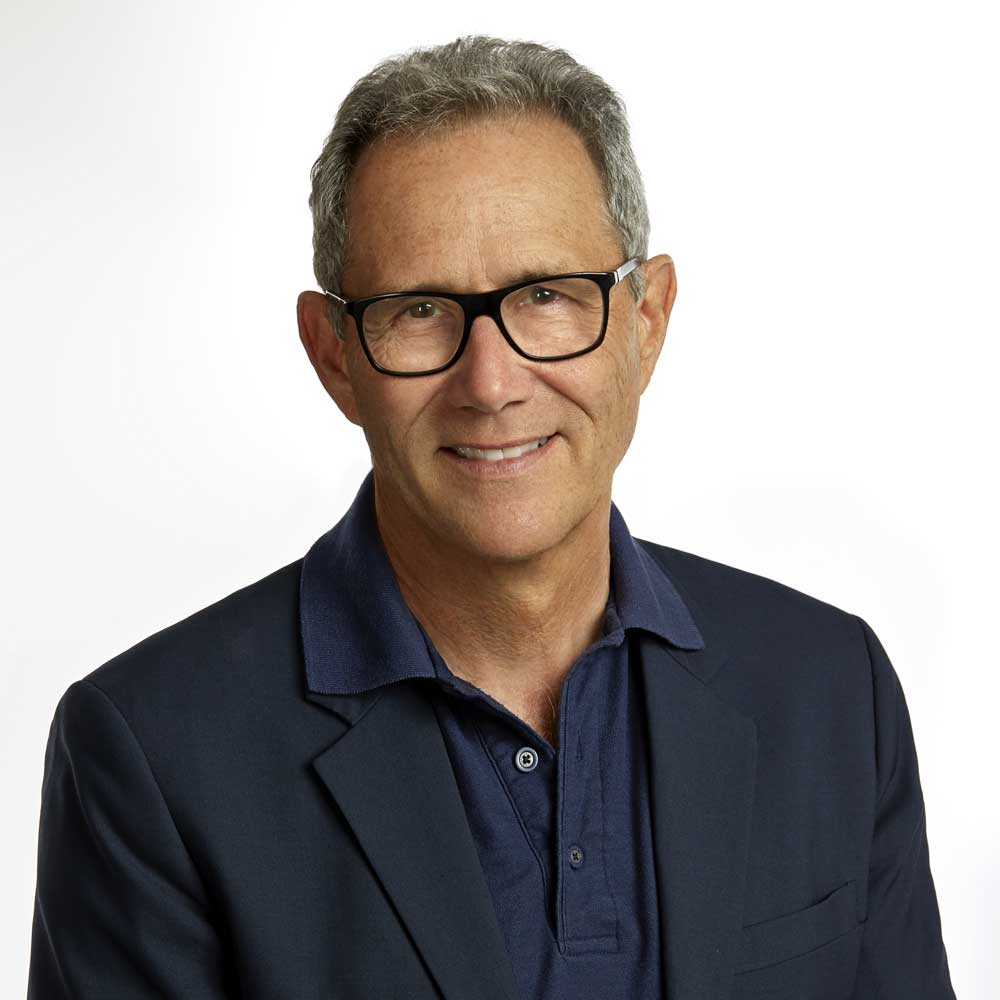 You can book Steve for many different audiences
You can book Steve for many different audiences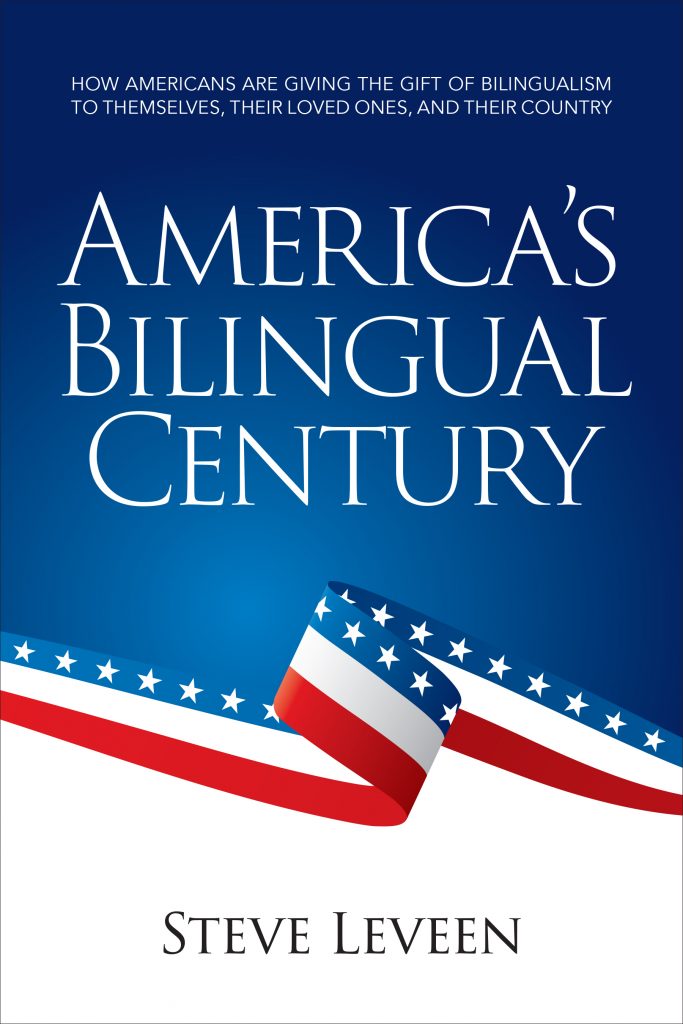
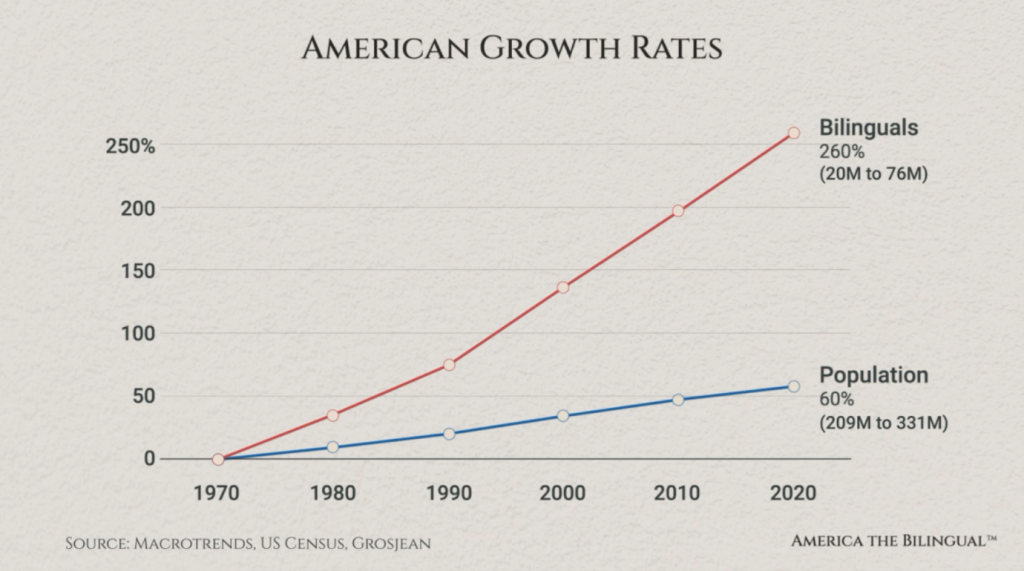
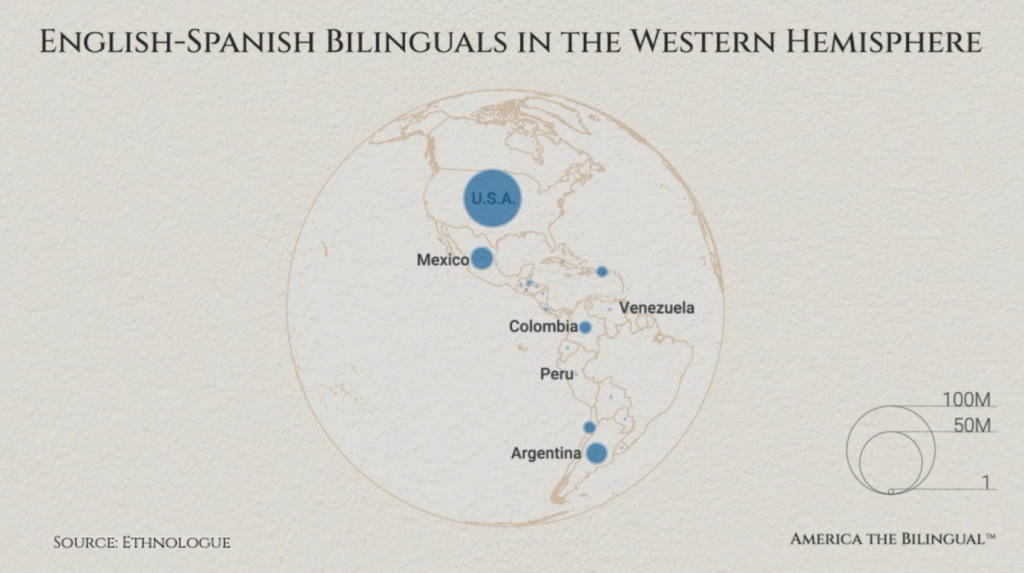
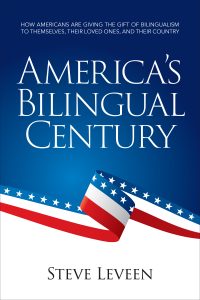
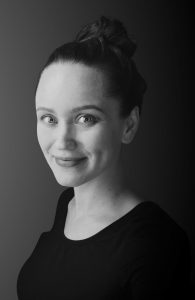
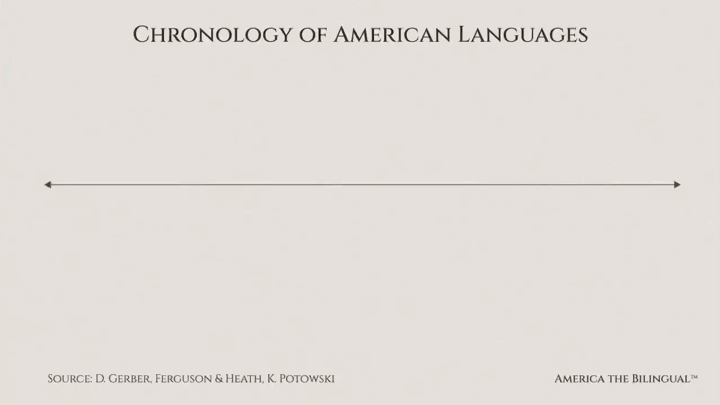


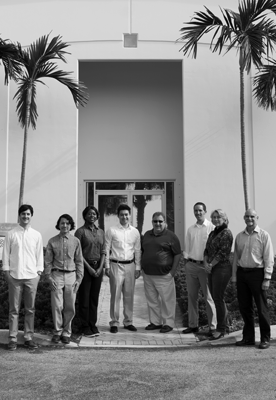
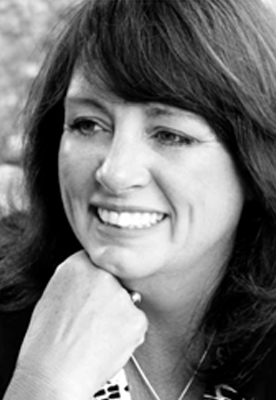 First, know that she has one of those glorious English accents (or what all of us who are not English would call an accent), which makes her a natural for the audio book narration that she does. Although U.S. born, Caroline grew up in England and studied literature at the University of Warwick (fyi for American ears: that second “w” is silent).
First, know that she has one of those glorious English accents (or what all of us who are not English would call an accent), which makes her a natural for the audio book narration that she does. Although U.S. born, Caroline grew up in England and studied literature at the University of Warwick (fyi for American ears: that second “w” is silent).